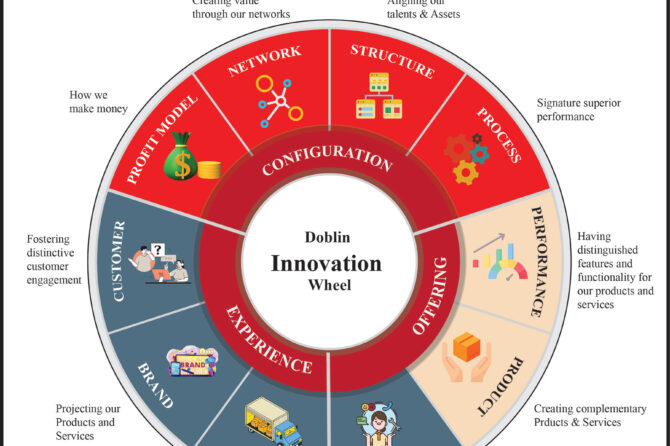
To begin with, I’m thrilled to announce that my article, “Innovation: Dublin-KENT Way,” has been published in the Journal of Acute Care. To begin with, I’m thrilled to announce the publication of my article, “Innovation: Dublin-KENT Way,” in the Journal of Acute Care. The article underscores the limited emphasis on innovation among Indian doctors. Contrary to the common misconception that innovation pertains solely to product invention, the piece highlights its broader application in medical practice and healthcare business management. Drawing inspiration from Larry Keeley’s “Ten Types of Innovation,” I recount how I transformed my medical practice in a small town. Not only did I manage to retain local patients, but I also attracted both national and international clientele, illustrating that these principles can be applied universally across various specialties and industries. You can download the PDF of the article using the following link: https://www.jacutecare.com/doi/JAC/pdf/10.5005/jp-journals-10089-0058.
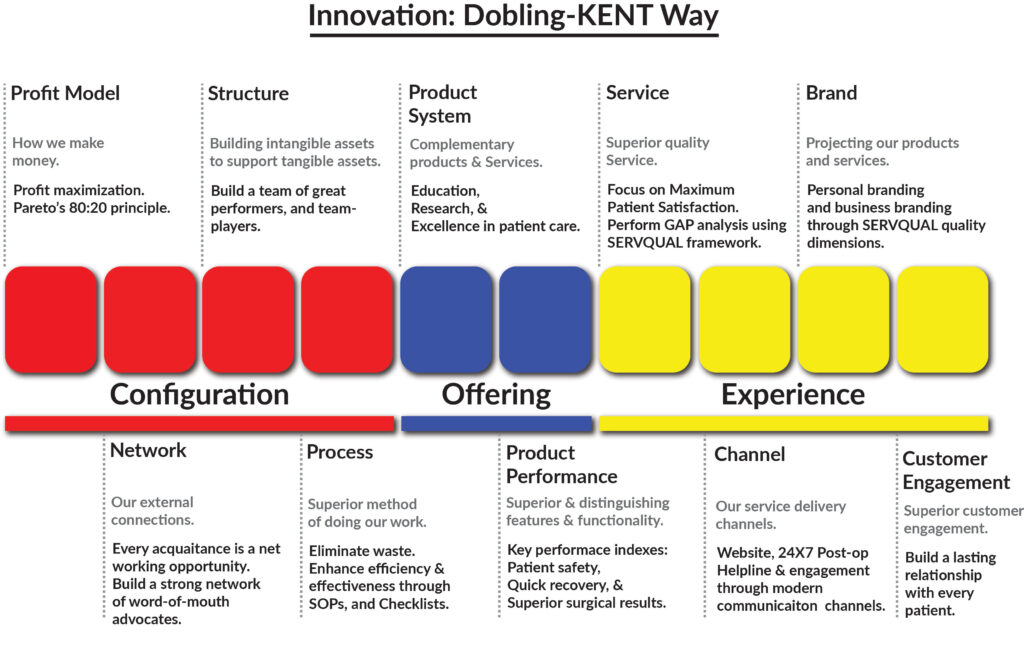
From the vast landscapes to urban spaces, businesses today are increasingly guided by the philosophy of sustainability. Sustainable business growth isn’t just an environmental catchphrase but a commitment to balance the tripod of economic, social, and environmental needs. The aim? To craft a narrative of growth that transcends quarterly reports, encompassing the broader spectrum of stakeholder wellbeing, planetary health, and corporate viability.
However, to merely state this would be superficial. To witness it, palpable and pervasive, one needs to visit the Netherlands, a country that seemingly wears sustainability not just as a badge, but as its second skin. The Dutch exemplify how to seamlessly entwine the essence of sustainable growth by upholding the trinity of economy, social equity, and environment, with a special emphasis on the latter.
Our sojourn began with a smooth journey to Amsterdam via Frankfurt. The experience of managing the quintessential heavy Indian luggage from Schiphol airport to Rotterdam Central Station was nothing short of exhilarating. Rotterdam Central Station stood out not just as a transport hub, but as an architectural piece de resistance, so much so that it captured my architect son’s imagination.
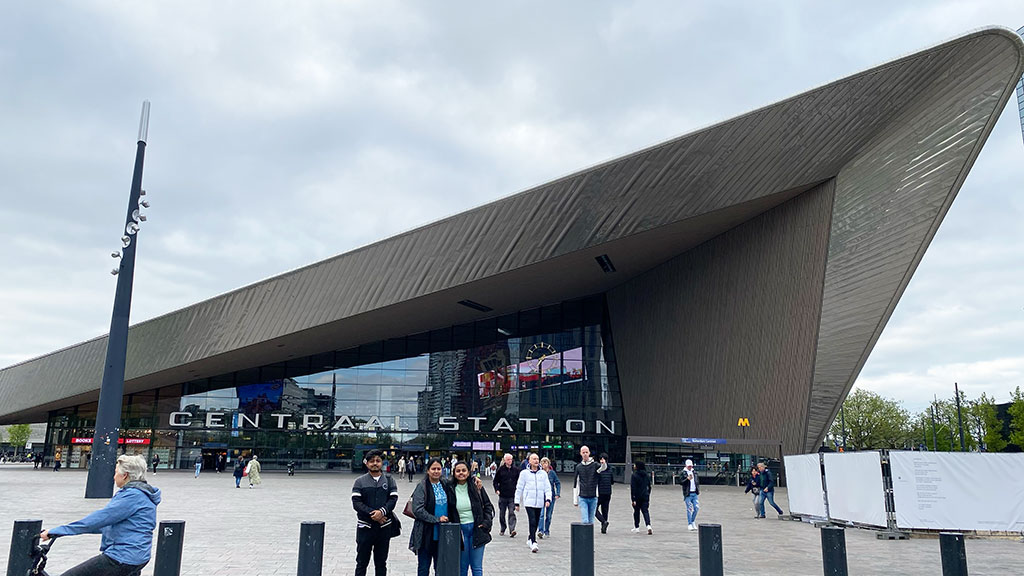
Despite making a hotel reservation close to the central station for the sake of convenience, we found ourselves playing a comical tug-of-war with Google maps. The image of us Indians lugging our colossal bags across Rotterdam’s promenades might have been a curious sight for locals.
The city greeted us with banners of ESPCI, indicating that we were in proximity to our primary destination: De Doelen, the venue for the European Symposium on Paediatric Cochlear Implantation. Labelling it as just another conference would be an understatement. It stood out as one of the most environmentally-conscious events I’ve attended.
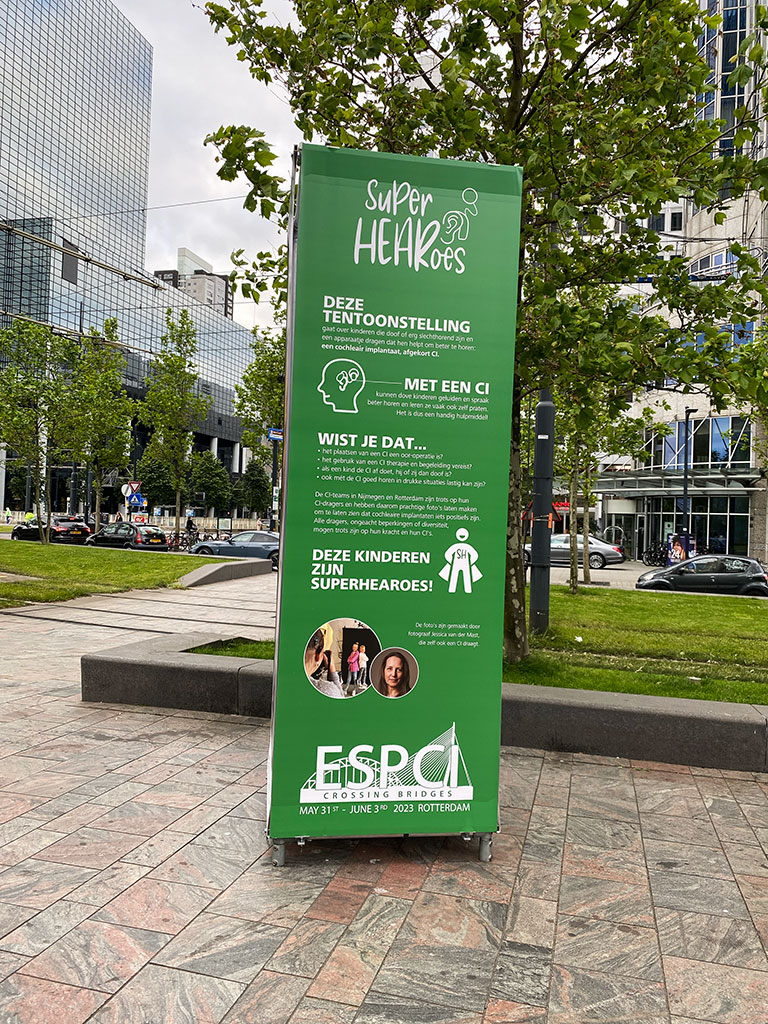
The symposium’s green ethos was apparent right from the registration desk. Every delegate was handed a free ticket for local transport, an initiative to reduce our carbon footprint. This gesture was not just a nod to convenience but a pronounced step toward reducing reliance on taxis and thus, curbing fossil fuel consumption. The commitment didn’t stop there. The usual plastic bottles were replaced with ones made of sugarcane residue, subtly hinting at the possibilities of sustainable alternatives.
But what caught everyone’s attention was the unprecedented move of having speakers declare their green initiatives in their presentations. It was a revelation to see the majority of them begin their discourse with three declarations beyond their academic affiliations: Ethical Clearance, Statement on Conflict of Interest, and Green Initiative.
To top it all, the culinary offerings at the congress were exclusively vegetarian, a testament to the gathering’s commitment to sustainability.
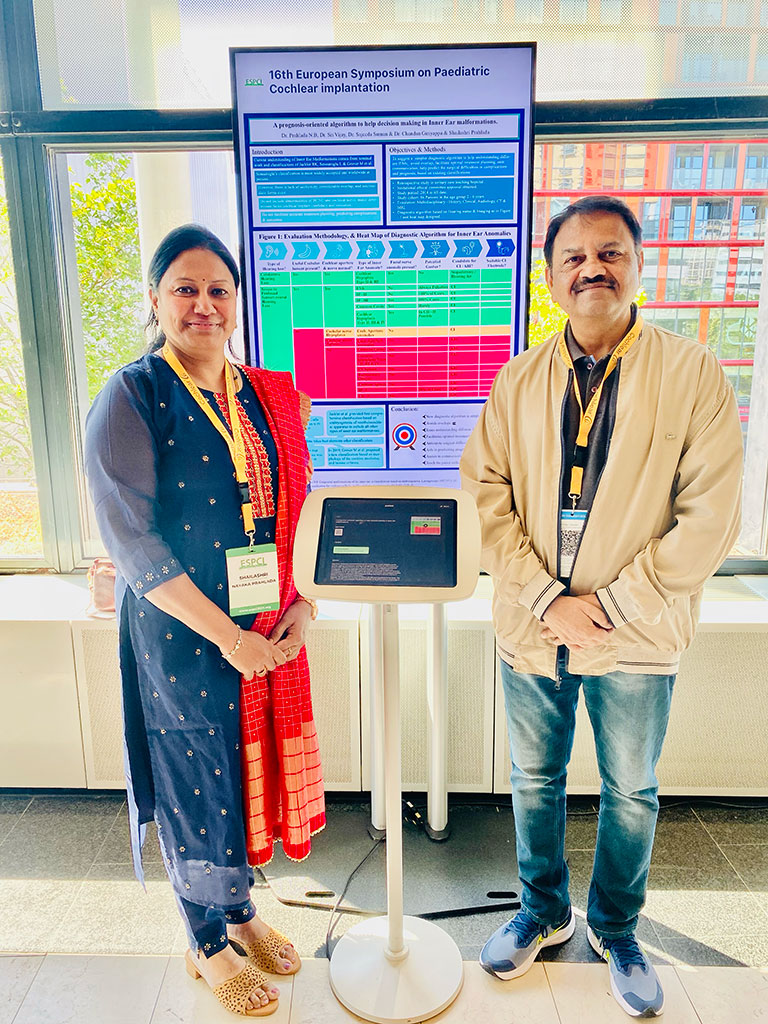
While India has made commendable strides in addressing environmental challenges, the journey towards total sustainability is far from over. This sentiment resonated strongly with us, especially after witnessing our undergraduate students secure a proud third place under our guidance, competing against formidable contenders from premier institutions like IITs, IISc, and IIMs. Their achievement was part of the 2-Day Regional Consultative Meeting for Technology Vision 2047, hosted by the prestigious Indian Institute of Science and backed by Technology Information, Forecasting and Assessment Council (TIFAC), that is part of the Ministry of Science and Technology.
This initiative invited the country’s youth to put forth their visionary ideas for a sustainable India by 2047. From a plethora of submissions, only 25 standout proposals were shortlisted for the conclave, a testament to the high-quality insights and innovations sought by the event. At the core, the gathering aimed to harness technology’s potential in achieving India’s Sustainable Development Goals. Besides presenting a platform for students to flaunt their transformative ideas, it also offered them the golden chance to gain feedback from a distinguished assembly of industry leaders, policymakers, and academic stalwarts. It’s not just the victory but the entire experience that emphasized the importance of futuristic thinking, technological innovation, and holistic policy recommendations for a thriving India.
The Netherlands, with its inherent drive towards sustainable practices, provided not just a beautiful backdrop but also significant insights. The journey underscored the importance of businesses evolving to be more in tune with our planet’s needs, with the Dutch setting a compelling example.
Prof. Dr. Prahlada N.B
27 August 2023
Chitradurga

















Leave a reply